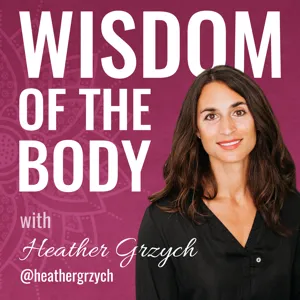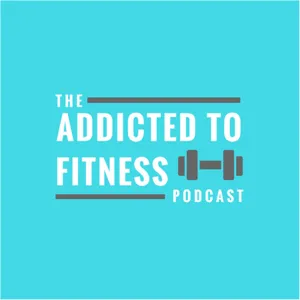Podcast Summary
Exploring the intersection of religion and science for human well-being: Religion and science can inform each other in promoting human well-being. Research shows religiously active individuals are happier, and religious practices like meditation tap into mechanisms that promote kindness, compassion, and resilience. Scientists can gain insights into human behavior from religious traditions.
Religion and science are not mutually exclusive, but rather, they can inform each other in significant ways, particularly when it comes to understanding and promoting human well-being. For over a thousand years, people have turned to religion for guidance on leading happy, moral, and fulfilling lives, and studies suggest that those who are actively religious are more likely to report greater happiness than those who are not. Behavioral scientist Dr. David DiStanno, who studies the ways emotions influence social behavior and moral decision making, has been intrigued by the potential insights that religious traditions can offer for improving well-being. Through his research, he's found that many religious practices, such as meditation, tap into mechanisms that promote kindness, compassion, and resilience. These discoveries are humbling for scientists, as they've been intuited by religious thinkers for centuries. By studying the rituals and traditions of religion, behavioral scientists can gain valuable insights into human behavior and develop strategies for promoting well-being that go beyond the realm of religious belief.
Exploring the Power of Religious Rituals: Religious rituals have the power to create feelings of connection and compassion through synchronized actions and reduced respiration rates, improving human well-being.
While we may not be able to answer definitive questions about the nature of the cosmos or the existence of God through religion, we can still learn valuable lessons from it. Religious practices, particularly rituals, have the power to make a positive impact on people's lives. Rituals are defined as actions done with a special intention, and they can create feelings of connection and compassion through synchronized actions and reduced respiration rates. These rituals have been intuitively designed over time to manipulate our physiology and thinking to help achieve their goals. By focusing on the power of rituals and the wisdom they offer, rather than getting bogged down in debates about the existence of God, we can find common ground and improve human well-being.
Exploring the power of rituals in different stages of life: Rituals, rooted in various religious traditions, offer instrumental support during grief by encouraging community involvement and providing psychological benefits.
Rituals, which can be thought of as debugged technologies, have been honed over millennia to impact our minds and bodies, helping us achieve our goals. The book "Ritual: Perspectives and Dimensions" explores how various religious traditions assist individuals at different stages of life. A compelling example is the process of grieving. While it's inevitable for everyone, research shows that consolidating positive memories of the deceased can lead to a more resilient grieving process. The Jewish ritual of sitting shiva, a seven-day period of mourning, offers instrumental support by requiring community members to visit, bring food, and help out, which is a leading predictor of helping people through grief. Other elements of the ritual, such as covering mirrors and sitting low to the ground, also have psychological benefits, reducing grief and providing physical discomfort to distract from emotional pain.
Synchronized activities with shared beliefs enhance well-being: Engaging in synchronized activities with shared beliefs improves health outcomes, including lower mortality and better mental and cardiovascular health.
Participating in synchronized activities, whether it's religious rituals or secular ones like joining a chorus or a sports team, can have significant positive effects on both our psychological and physiological well-being. These benefits go beyond just the sense of community and connection we get from joining any group. Instead, it's the additional elements of belief and shared meaning that amplify these benefits. For instance, research shows that regularly engaging in the activities of one's faith can lead to better health outcomes, including lower mortality and improved mental and cardiovascular health. While community is essential for human well-being, these findings suggest that there's something unique about the practices and beliefs within religious traditions that provide extra benefits. So, while singing in a chorus or playing on a sports team can bring people closer together, adding in shared beliefs and meaning can make these experiences even more impactful. However, more research is needed to determine exactly how much stronger the effects are when these elements are present.
The power of belief in healing and actions: Belief in healing practices like meditation can lead to positive outcomes, even if the practices themselves have no inherent healing properties. Belief sets expectations and predictions, and can influence our actions and interactions with others.
The power of belief plays a significant role in the healing process, beyond the actions of practices like meditation. Belief sets our mind's expectations and predictions, and studies have shown that placebos can even be effective when individuals know they're receiving a placebo if they believe in the placebo effect. Meditation, for instance, has been scientifically proven to alter the brain and reduce stress, but for practitioners, its primary purpose is to alleviate suffering and cultivate compassion. In a study, researchers found that only about 15% of non-meditators offered their chair to someone in pain, while 100% of the meditators did. This highlights the potential impact of belief and mindset on our actions and interactions with others.
Meditation increases compassion and reduces desire for revenge: Meditating regularly can lead to increased compassion, decreased desire for revenge, and fostered feelings of gratitude, patience, and trust towards others.
Regular meditation practice can increase compassion and reduce the desire for revenge. A study found that meditators were more likely to give up their seats on the bus or subway for those in need, compared to non-meditators. Additionally, meditation has been shown to foster feelings of gratitude, leading to increased generosity, patience, and trust towards others. Religions, with their various rituals and practices, serve as tools to help individuals reach their goals of becoming better people. However, while meditation is effective in promoting compassion and reducing negative emotions, it may not directly address the desire for meaning and happiness in life. As people age, they tend to prioritize relationships and service over material gains, leading to increased happiness. Therefore, while meditation is a valuable tool, it may not be the only practice necessary for a fulfilling and meaningful life.
Reflecting on Values and Priorities During Crisis or Reflection: Regularly reflecting on actions and values can increase happiness and well-being, while crises or rituals can provide opportunities to prioritize relationships, meaning, and service.
Our perception of time and its impact on our values and happiness can be influenced by various factors, including age, life events, and reminders of mortality. Research has shown that during times of crisis or reflection, such as pandemics or religious rituals, people tend to prioritize relationships, meaning, and service. This shift in values can lead to greater happiness and fulfillment. However, it's not necessary to wait for a crisis or ritual to occur to reassess our lives and priorities. By regularly reflecting on our actions and considering whether they align with our values, we can increase our overall sense of happiness and well-being. Additionally, the use of psychoactive substances, like psychedelics, can provide transformative experiences, but the accompanying rituals and preparation are essential to ensure a positive and meaningful experience.
Ensuring positive psychedelic experiences through trust-building and support: Modern psychedelic therapy replicates shamanic practices by preparing, supporting, and guiding individuals during and after use, promoting positive experiences in a secular context.
Psychedelic therapy, inspired by traditional shamanic practices, is an effective way to ensure positive experiences during psychedelic use. Modern researchers, such as those at Johns Hopkins, are replicating the trust-building and supportive role of shamans by preparing individuals beforehand, sitting with them during the experience, and providing guidance and support afterwards. This approach, which focuses on the physiological and psychological benefits, can be used in a secular context without appropriating religious symbology. Religion, on the other hand, can have both positive and negative effects. While it can provide comfort and happiness, it can also instill fear through the threat of punishment and eternal damnation. This fear can motivate individuals in small doses but can cause harm over the long term. As a psychologist, my focus is on understanding what works and what's helpful, rather than defending or criticizing religion as a whole.
Exploring the value of spiritual practices despite religious decline: Religious decline doesn't mean abandoning spiritual practices, which have been linked to longer, healthier, happier lives. Psychologists should understand why they're being abandoned and find ways to replace them.
While religion has its problems and can be used for good or ill, its spiritual practices are valuable tools for motivation and personal growth. The decline in religious affiliation in America doesn't necessarily mean people will be less happy or moral, but rather, they may be seeking new ways to be spiritual. Psychologically, spiritual practices have been linked to longer, healthier, and happier lives. As psychologists, it's our responsibility to understand why and find ways to replace these practices if they're being abandoned. The search for the next spiritual practice could be an opportunity for science to contribute to people's well-being.
Understanding the role of emotions in decision-making and mental health: Emotions are essential for our survival and well-being, influencing our thoughts and behaviors. Understanding emotions can lead to better decisions, stronger relationships, and improved mental health. Seek professional help when dealing with emotional challenges and encourage open conversations about mental health.
Learning from this episode of Speaking of Psychology is the importance of understanding the role of emotions in decision-making and mental health. Dr. Distano shared insights into the science behind emotions, their impact on our brains, and how they influence our thoughts and behaviors. He emphasized that emotions are not just feelings but are essential for our survival and well-being. Understanding emotions can help us make better decisions, build stronger relationships, and improve our mental health. Additionally, Dr. Distano discussed the importance of seeking professional help when dealing with emotional challenges and encouraged open conversations about mental health. Overall, this episode highlights the significance of emotions in our lives and encourages us to embrace them rather than suppress them.




